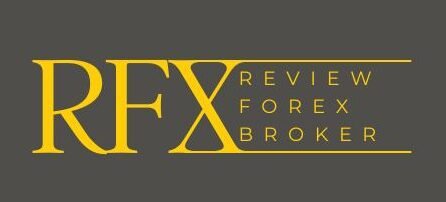When you step into the world of online trading, particularly forex, you’ll quickly encounter a distinction that can feel a bit murky: onshore vs. offshore brokers. Both offer access to financial markets, but they operate under vastly different regulatory frameworks, which has significant implications for your money and your peace of mind.
So, which should you trust with your hard-earned capital? Let’s break down the key differences to help you make an informed decision.
Understanding the Basics: Regulation is Key
The core difference lies in where a broker is regulated and by whom:
- Onshore Brokers (Regulated): These brokers are licensed and regulated by financial authorities within established, highly reputable jurisdictions. Think of countries like the United States (CFTC, NFA), the United Kingdom (FCA), Australia (ASIC), Japan (FSA), or countries within the Eurozone (e.g., BaFin in Germany, CySEC in Cyprus, under ESMA guidelines).
- The “Onshore” Advantage: These regulators typically impose stringent rules regarding capital requirements, client fund segregation (meaning your money is held in separate accounts from the broker’s operational funds), transparent reporting, and robust dispute resolution mechanisms. This often translates to higher levels of client protection and a perception of greater trustworthiness.
- Offshore Brokers (Less Regulated): These brokers are licensed in jurisdictions often referred to as “offshore financial centers” or “tax havens.” Examples include Belize, Seychelles, Mauritius, Vanuatu, or the British Virgin Islands.
- The “Offshore” Proposition: These jurisdictions often have more relaxed regulatory requirements, lower capital demands, and less stringent oversight. This can make it easier and cheaper for brokers to set up operations, and they may offer more flexible trading conditions (like higher leverage) to attract clients.
Advantages of Onshore Brokers: The Pillar of Security
Choosing an onshore-regulated broker often means prioritizing safety and security:
- Stronger Client Protection: This is the biggest draw. Regulated onshore brokers typically offer investor compensation schemes (e.g., FSCS in the UK) that can reimburse clients up to a certain amount in case of broker insolvency. Client fund segregation is usually mandatory, providing an extra layer of protection.
- More Robust Oversight: Regulators in these jurisdictions actively monitor broker activities, conduct regular audits, and enforce strict compliance rules to prevent fraud and manipulation.
- Clearer Legal Recourse: If a dispute arises, you generally have more established and accessible legal avenues for resolution in a well-regulated onshore jurisdiction.
- Reputation and Trust: Onshore brokers often carry a stronger reputation due to the rigorous standards they must meet, which can build greater confidence among traders.
- Fairer Trading Conditions: While some believe onshore brokers offer less attractive conditions, their operations are typically more transparent, and their execution models are more heavily scrutinized for fairness.
Advantages of Offshore Brokers: The Allure of Flexibility (and Risk)
Offshore brokers can appeal to certain traders, often those with a higher risk tolerance or specific needs:
- Higher Leverage: Offshore brokers often offer significantly higher leverage ratios than their onshore counterparts, which are restricted by stricter regulations (e.g., 1:30 in the EU vs. 1:500 or more offshore). This can appeal to traders seeking to maximize potential returns with smaller capital, but it also magnifies potential losses.
- Easier Account Opening: The account opening process can sometimes be quicker and require less stringent documentation.
- Access for Restricted Regions: Some onshore regulations prevent brokers from accepting clients from certain countries, leading traders in those regions to seek offshore options.
- Wider Product Offerings: Due to less strict rules, some offshore brokers might offer a broader range of trading instruments or exotic pairs not available elsewhere.
- Lower Costs (Sometimes): While not always true, lower regulatory burdens can sometimes translate to slightly lower trading costs or wider bonuses, though this should always be weighed against the increased risk.
The Risks: Where Offshore Can Fall Short
The flexibility offered by offshore brokers often comes with significant downsides:
- Limited Client Protection: In many offshore jurisdictions, there are no robust investor compensation schemes or strict client fund segregation rules. If the broker goes bankrupt or disappears, your funds might be at severe risk.
- Less Regulatory Oversight: Lax regulation means less scrutiny of broker practices, potentially leading to issues like unfair trading conditions, manipulation, or even outright scams.
- Difficult Dispute Resolution: Recourse for disputes can be challenging, expensive, and time-consuming, often requiring engagement with unfamiliar legal systems in distant jurisdictions.
- Reputational Concerns: The general public sometimes views offshore companies with skepticism, associating them with tax evasion or less ethical practices, even if the broker itself is legitimate.
- Potential for Scams: The less stringent regulatory environment makes it easier for fraudulent entities to set up operations, making due diligence even more critical.
Which Should You Trust?
For the vast majority of traders, especially beginners, the answer leans heavily towards onshore-regulated brokers. The peace of mind that comes with strong client protection, robust oversight, and clear legal recourse is invaluable. While leverage might be lower, the security of your capital should always be the top priority.
However, if you are an experienced trader, fully understand the inherent risks, have a high-risk tolerance, and require specific conditions like extremely high leverage not available with onshore brokers, an offshore broker might be considered. Even then, extreme due diligence is crucial.
Before choosing any broker, always verify their regulation. Don’t just take their word for it. Check the official website of the stated regulator (e.g., FCA, ASIC, CySEC) and search for the broker’s license number. Look for a long track record, positive reviews (from independent sources), and clear terms and conditions.
In the world of forex, entrusting your money to a regulated entity is not just a recommendation; it’s a fundamental step in safeguarding your investments. Choose wisely, prioritize security, and trade with confidence.

